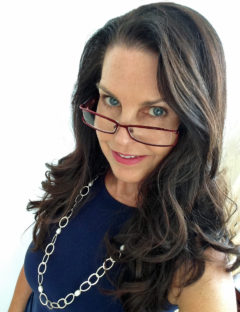 While a variety of skills are needed to fight fires, but these courageous Cy-Fair firefighters have one thing in common: They are dedicated to help others in their worst moments. Their commitment to their community makes them some of Cy-Fair’s hottest firefighters.
While a variety of skills are needed to fight fires, but these courageous Cy-Fair firefighters have one thing in common: They are dedicated to help others in their worst moments. Their commitment to their community makes them some of Cy-Fair’s hottest firefighters.
A Big Red Truck
“It’s every guy’s dream to grow up and drive a big, red truck,” says Sam Dyson, captain with Cy-Fair Volunteer Fire Department (Cy-Fair VFD). A diagnosis of diabetes at age four, coupled with an emergency response to his home, helped nurture the notion of helping others as a career. His father was a paramedic, and Dyson’s twin brother joined the department while in high school. Then, Dyson applied in 2004 after attending Thursday meetings that include continuing education courses and fire safety drills.
It takes about six months to complete the cadet classes and become certified by the State Fireman’s and Fire Marshals’ Association. “Anyone, 16 years old to 65, can complete the course and assist in some way, as long as you have the time to commit,” Dyson says. “I wish I’d joined earlier.”
As a volunteer, Dyson covers nights, weekends, and holidays when the paid staff is off. He also works a 10-hour day job in commodities trading. His presence at global Web conferences can be required at any moment, just like the fire calls. “In either case, I have to respond to a crisis, but between the two jobs, there’s rarely a good time to sleep,” Dyson says and laughs. He looks forward to challenges and enjoys problem solving.
Dogged Determination
Denise Corliss manages projects for a natural gas company and volunteers for Cy-Fair’s VFD’s Station 7. When it first opened in Fairfield in 1995, her husband Randy joined. Corliss jumped in a few years later and approached the Fire Chief about adding a canine department.
As part of the state’s search and rescue team, Texas Task Force One, Corliss wanted to extend her expertise as a dog handler. Enter Aid’N—or officially Aid’N the Search—the Golden Retriever Corliss trains with several times a week. “Most departments can’t afford to have dogs,” but why waste a resource I already have?” Corliss says. In any instance when people are missing, Aid’N searches for live human scent and barks to indicate a find.
Corliss coordinates a liaison to respond to other organizations, mainly fire and police. Sometimes, she may be deployed farther afield as when she traveled to New York after the Sept. 11 attacks. “It was an honor to be able to go,” Corliss says. “We enter at a traumatic point in people’s lives—accidents or fire—and it’s a privilege to help make it better.”
Balancing Family & Firefighting
Over a decade ago, David Martin took a CPR class during his wife’s first pregnancy. Their teacher volunteered for Cy-Fair VFD, and Martin soon signed up. “A driving force was wanting my child to look up to me and be proud,” he says. “I don’t shy away from things.”
As a father of two boys now and an IT job at a financial firm, Captain Martin has endured plenty of sleepless nights since. “Sometimes, I just get off the (fire) truck, and then, go to work (at my day job). Luckily, I have some leeway to work at my home office, but I don’t abuse it.”
Volunteer numbers at the stations ebb and flow because of moves and family commitments, but hover around 30 members. “Firefighting becomes part of you,” shares Martin. “It’s important to set parameters as a family of when to go out and serve the community and when to serve your family first.” Still, the firefighters’ bond of shared experiences creates a special kinship.
Making a Real Difference
Kerri Bierwagen, a full-time mom of three boys, attended a citizens fire academy in Jersey Village before becoming a volunteer with the Jersey Village Fire Department. “I’d already been a PTO president, a fundraiser—all the usual jobs—and wanted to get rid of all the petty drama for something real,” she says. “There are no greater people to work with here.”
Since completing the initial training, she earned her basic, and then, intermediate EMS training. Calls to duty during dinner are routine, and the family has learned to finish up without her. Bierwagen admits her greatest challenge is being physically small, but others help out. Each individual brings a unique skills set to make a team, and like other firefighters, she thrives on stimulation and variety. “I get nervous before a call, but our response is a disciplined drill,” she shares. “When the pager goes off, we rely on our training. It can be hard at 2 a.m., but they called 911 because they need help.” Her husband Jay jokes that they can always call 911 if they really need her.
A Rewarding Career
Rob Missall began his career in the military running ambulances. To retain his medical training, he volunteered as a firefighter while working for an oil company. In 2000, he transferred his industry training skills to become Training Officer for Jersey Village Fire Department as well as assistant chief of EMS.
Volunteer stations use a small crew to cover a lot of talents. “Whether it’s a rope rescue or car extraction, it’s a challenge, but it’s also what makes the job great.” He adds, “Mostly, it’s training, readying equipment, cleaning-up, and a willingness to smile after the no-glory jobs for the long haul. I feel fortunate getting paid to do this job. It’s the volunteers that amaze me—keeping up their training and their day jobs in order to help others.” The poster above his head says it all: Part-time Heroes, Full-time Rewards. CFM

